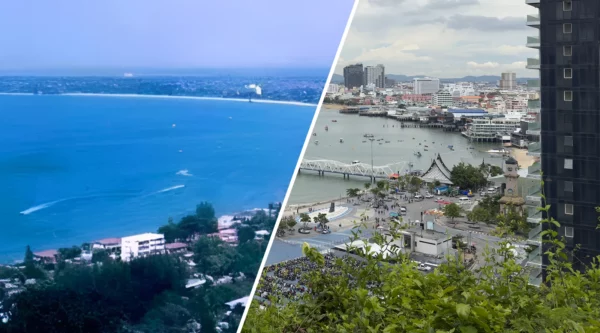
The history of Pattaya, a city on the eastern coast of Thailand, has changed a lot over the last few decades. It used to be a quiet fishing village, but now Pattaya is a busy tourist city. This story tells how the city changed and how these changes show how all of Thailand has grown.
For this post, I found some old photos of Pattaya city. The quality was terrible, so I enhance them using neural stuff. Some photos were originally black and white, so I colorized them.
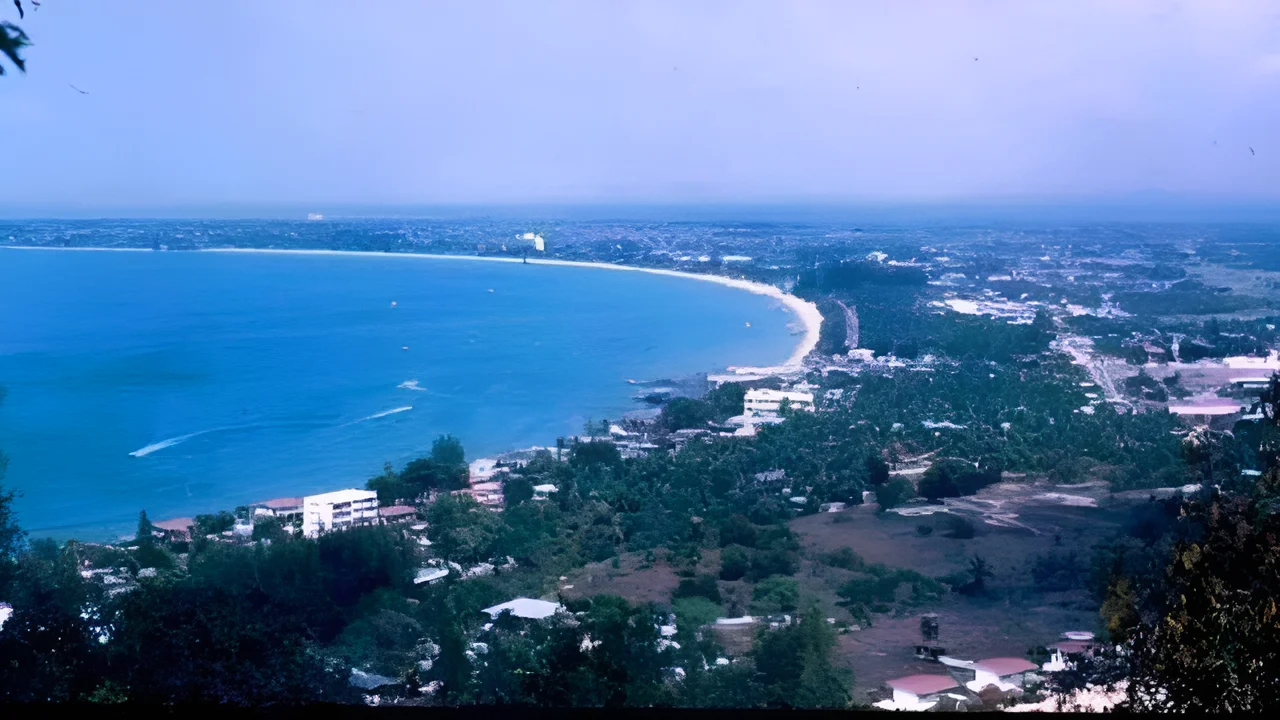
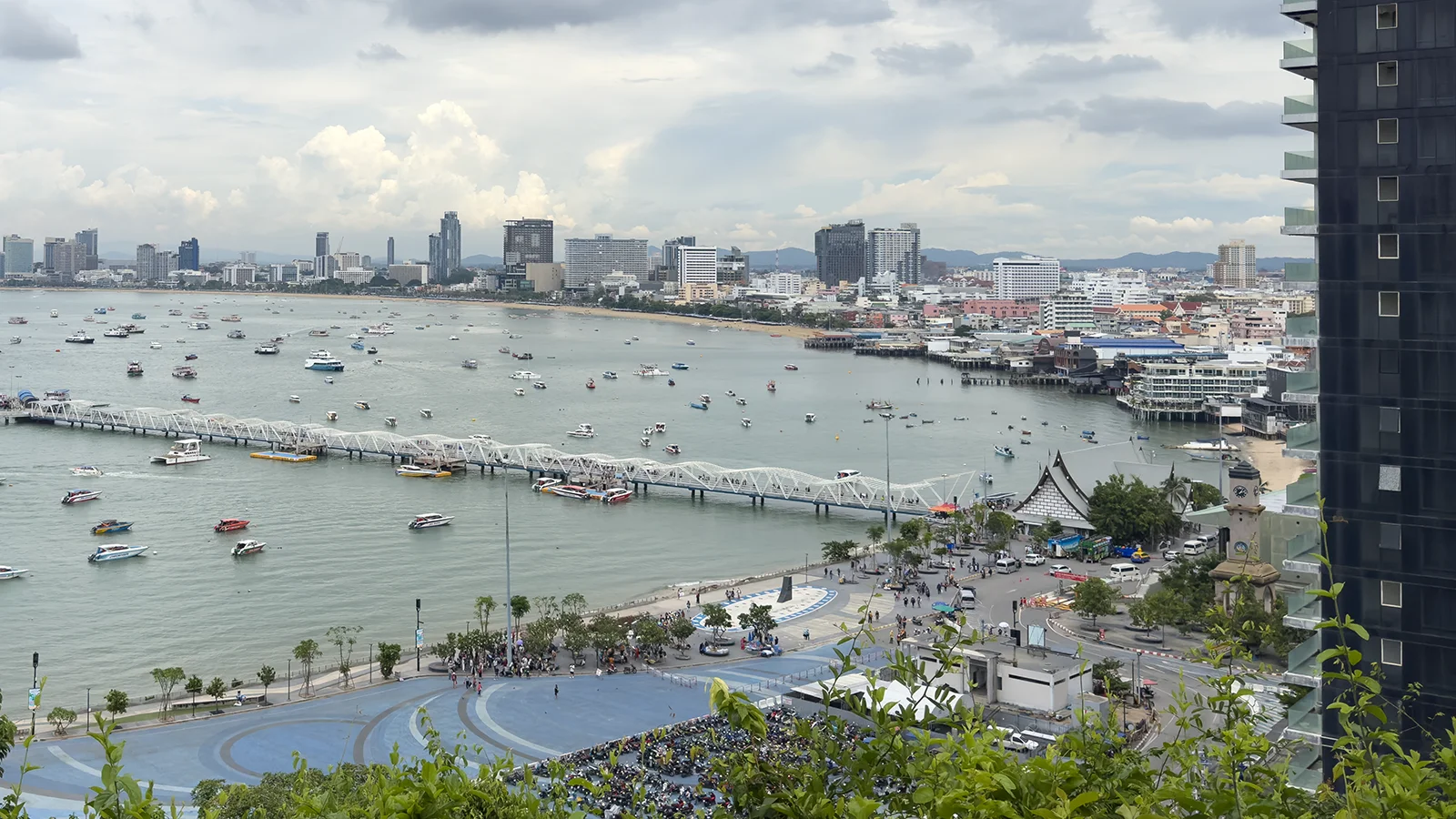
Early Days: Pattaya as a Fishing Village
Long ago, Pattaya was a peaceful coastal village. The name “Pattaya” might come from “Thap Phraya”, a forest that once protected an army led by Phraya Tak (later King Taksin) in the 18th century.
In the early 1900s, Pattaya was home to a small fishing community. Life was simple then:
- Houses had thatched roofs and lined unpaved streets
- Everyone in the community knew each other
- People made a living mostly from fishing, some did farming
- The beaches were clean and untouched by tourism
- You could see many traditional wooden boats on the shore
- Life moved with the rhythm of the sea – fishermen went out to sea and came back with their catch every day
Fishermen caught different types of fish: tuna, mackerel and grouper. They also caught squid and crabs. They sold fresh catch at the local market. Some fishermen made salted fish, which could be stored longer.
Women in the village often helped repair nets, process the catch, or sell fish. Children learned to fish from their fathers at an early age. It was a hard but peaceful life that hadn’t changed much for many years.
This quiet life was about to change dramatically.
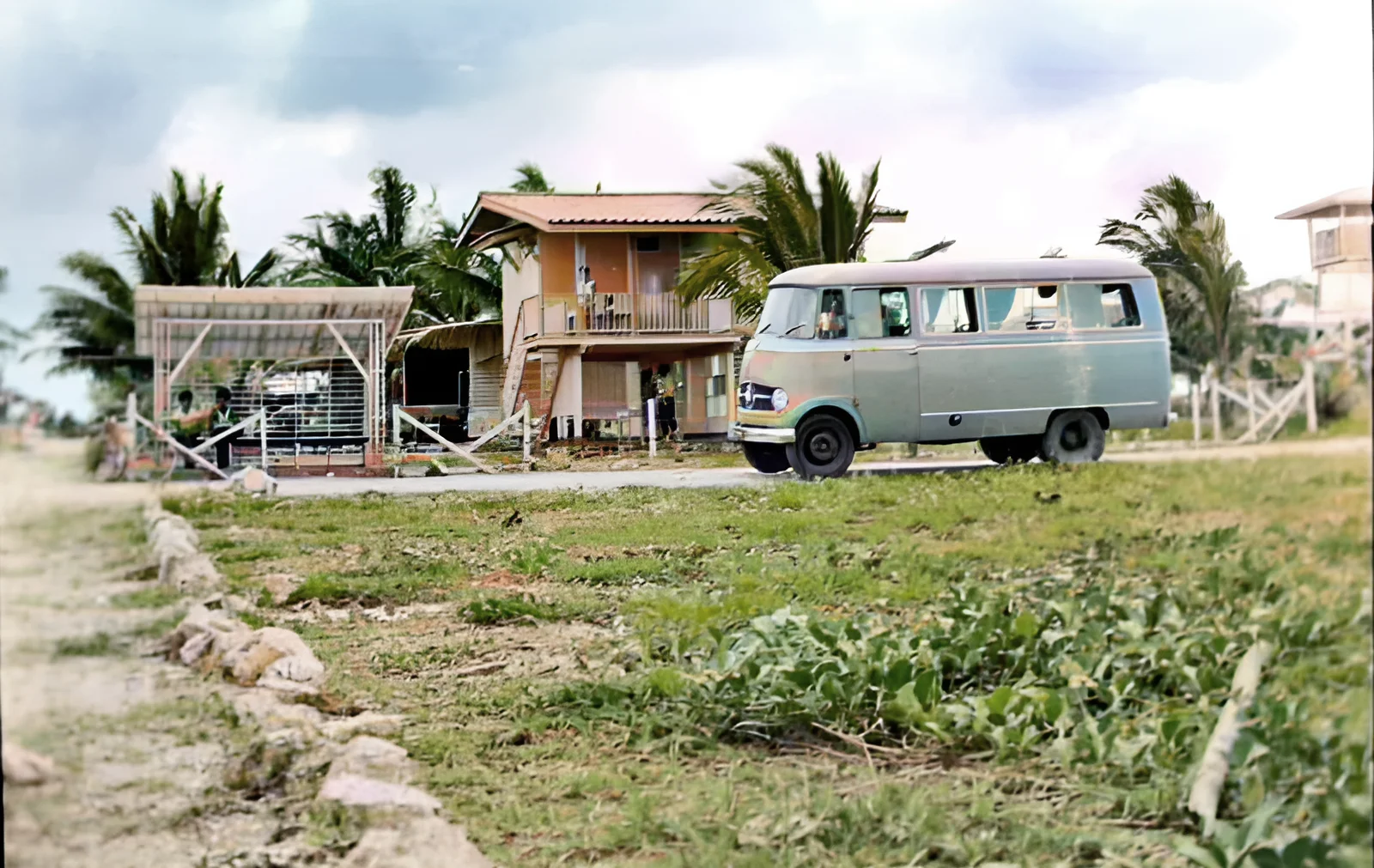
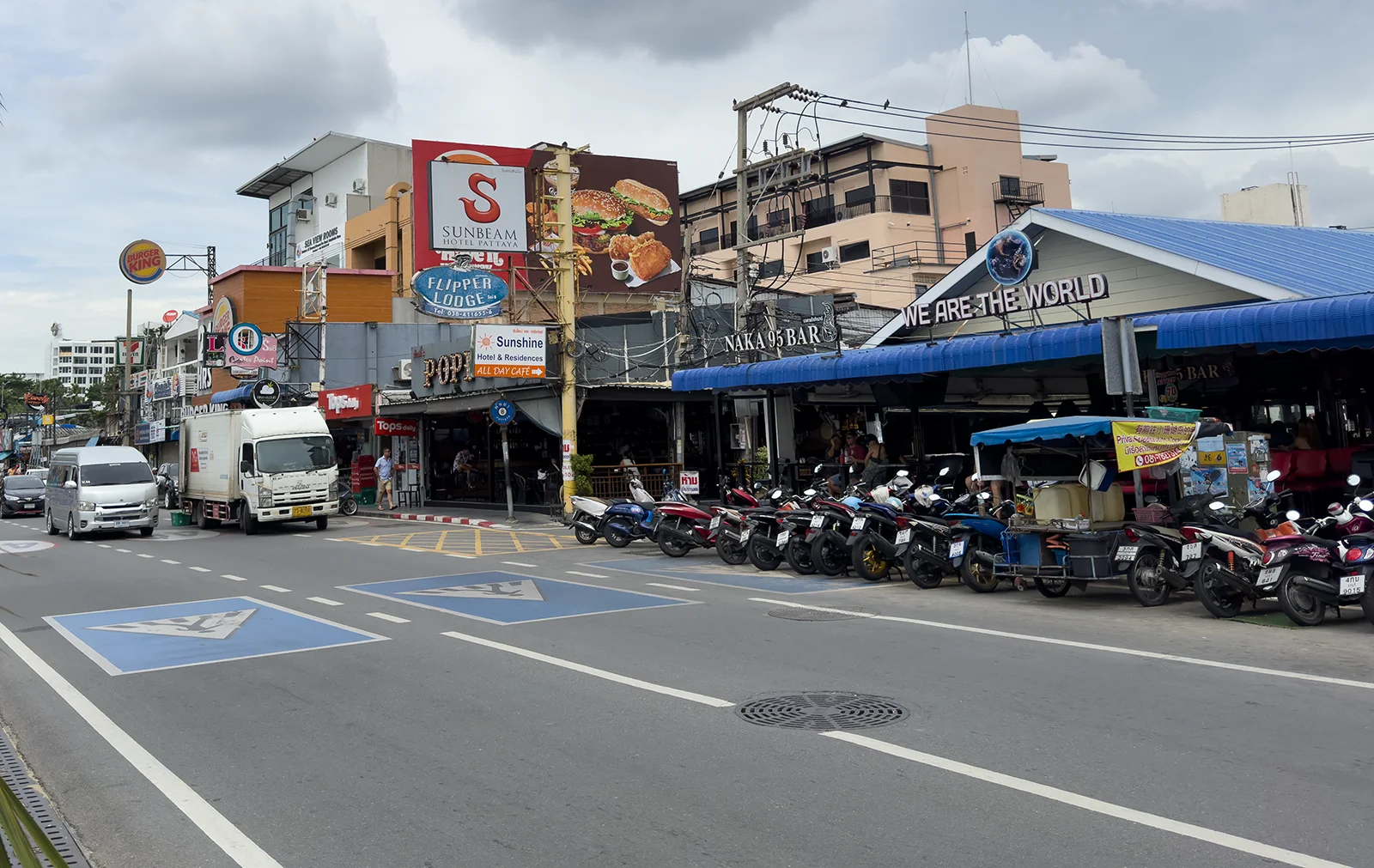
The Turning Point: American Soldiers and the Vietnam War
Big changes in Pattaya started in the 1960s during the Vietnam War. In 1959, a group of American soldiers from nearby military exercises came to Pattaya for a break. This visit started the village transformation:
- News about Pattaya’s beautiful beaches and friendly atmosphere spread quickly among American troops
- The U.S. military began officially sending soldiers to Pattaya for rest and relaxation
- Roads and basic services were quickly built to handle more visitors
- Local people started opening bars, restaurants, and guest houses for foreigners
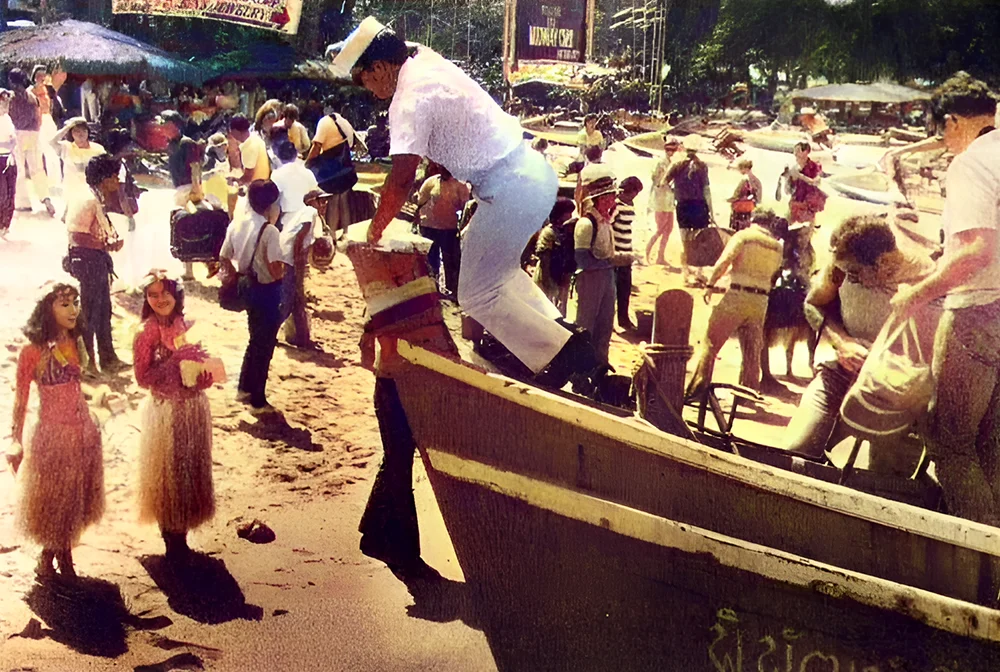
The arrival of American soldiers greatly affected Pattaya’s economy and culture:
- Traditional fishing became less important as tourism grew
- Many fishermen started working in new hotels or opened small businesses for tourists
- There was a new demand for learning English among local people
- The city started selling more Western goods, especially food and drinks
- Some local girls began working in bars, which changed the traditional way of life
The quiet village began to buzz with activity, preparing to become a major tourist destination. These were Pattaya’s first steps towards big changes.
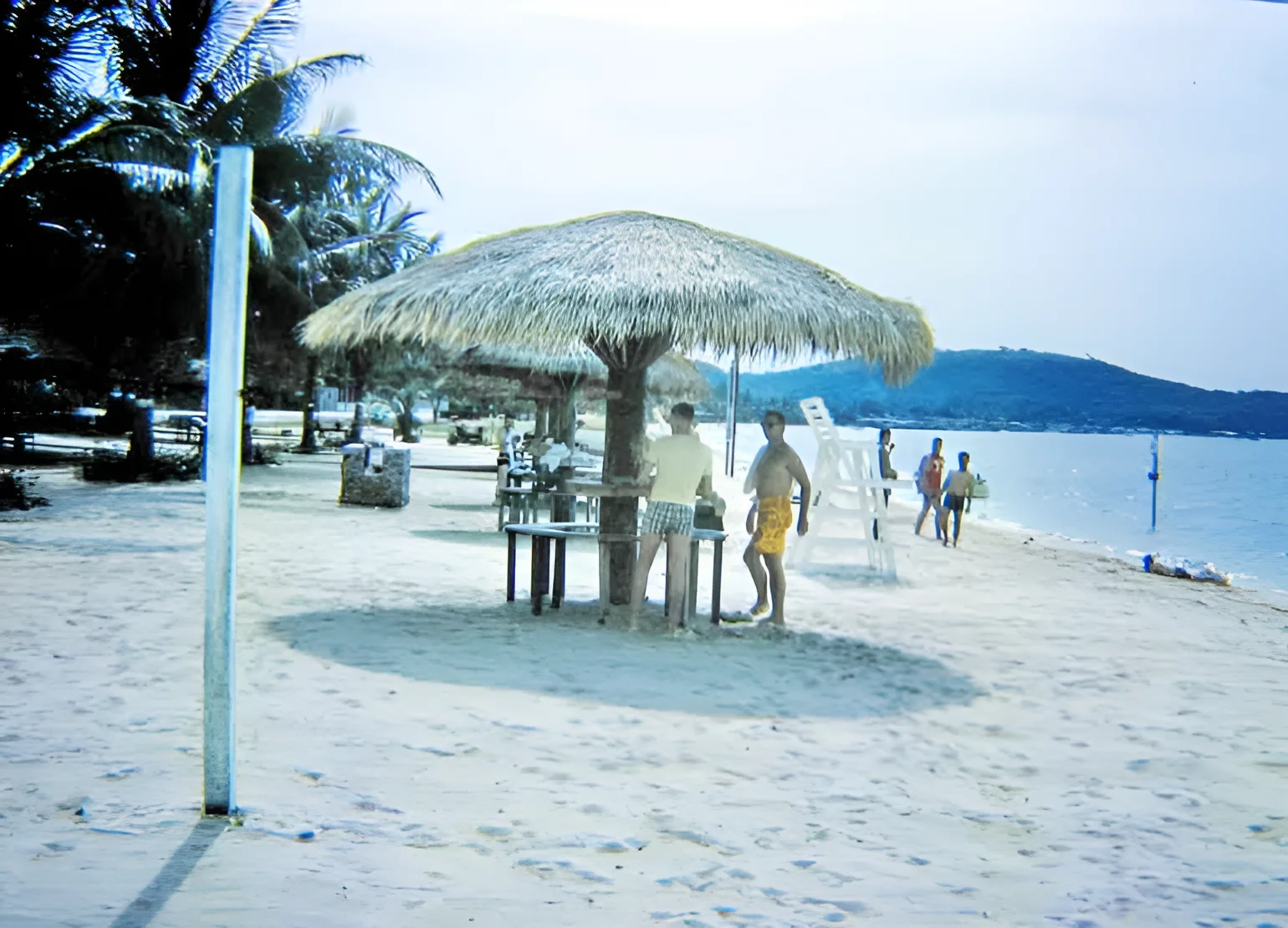
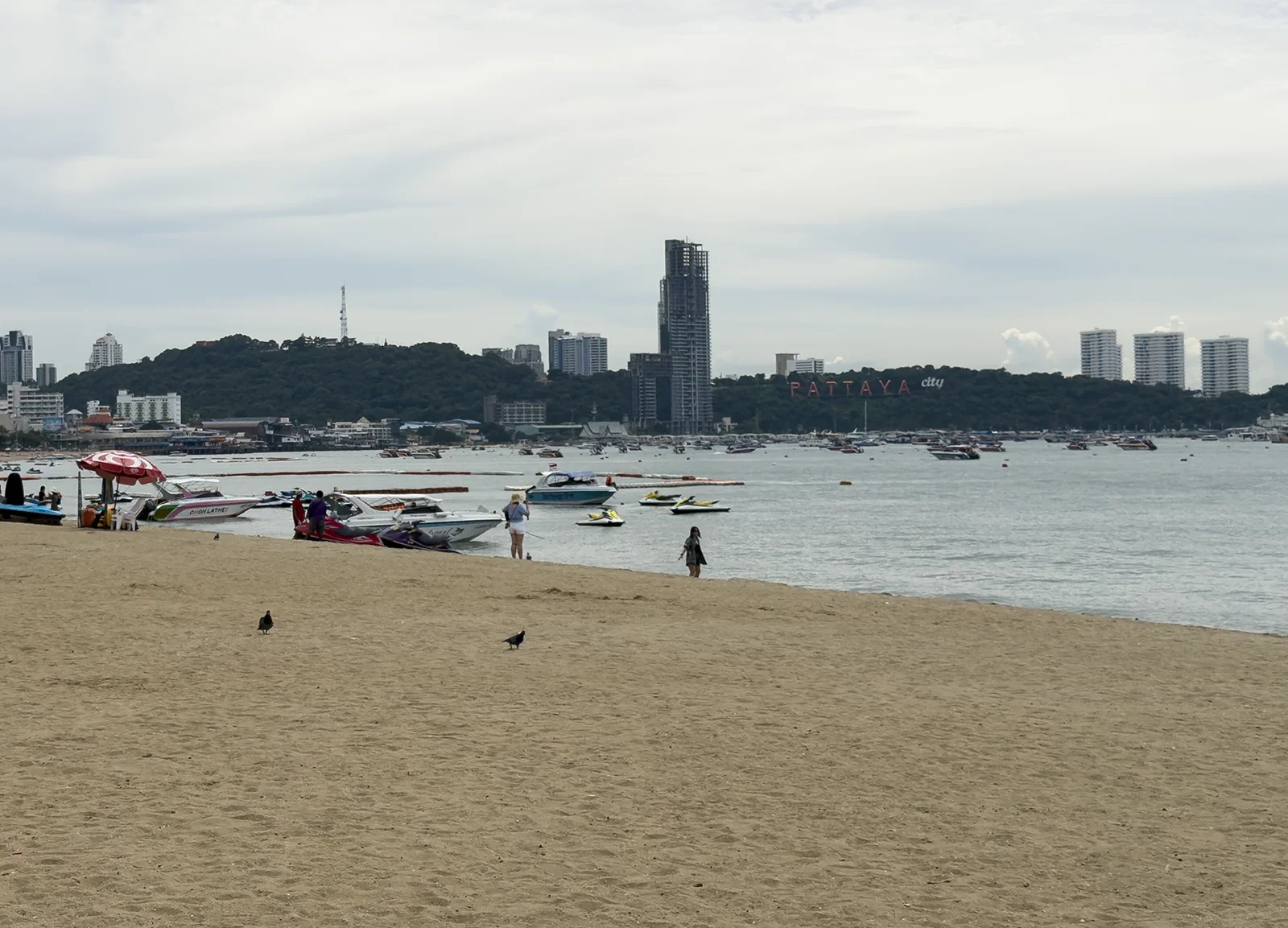
Rapid Growth: The 1970s and 1980s
After the Vietnam War ended, Pattaya’s growth sped up even more. The Thai government saw that tourism could bring in a lot of money and started investing in developing the area. During this time:
- Tall hotels were built along the beach
- Walking Street expanded and became the center of nightlife
- Transportation improved, including expanding the nearby U-Tapao airport
- Tourist attractions appeared, like the Nong Nooch Tropical Garden and the Sanctuary of Truth
The tourists coming to Pattaya also changed:
- In the 1960s, the main visitors were American military
- In the 1970s and 1980s, more tourists started coming from Europe and Japan
- Each group of tourists added something to the city’s character
Pattaya became known as a place to relax and have fun. There were many bars, nightclubs, and other entertainments. In 1978, Tahitian Queen was opened – the first Gogo club in the city. New establishments attracted tourists but also created problems.
The city grew quickly:
- The population increased several times in a short period
- New areas appeared, often without good planning
- Many people from nearby villages moved to the city looking for work
- Land and housing prices went up
All these changes made Pattaya a popular vacation spot, but they also brought new problems that the city would have to solve in the future.
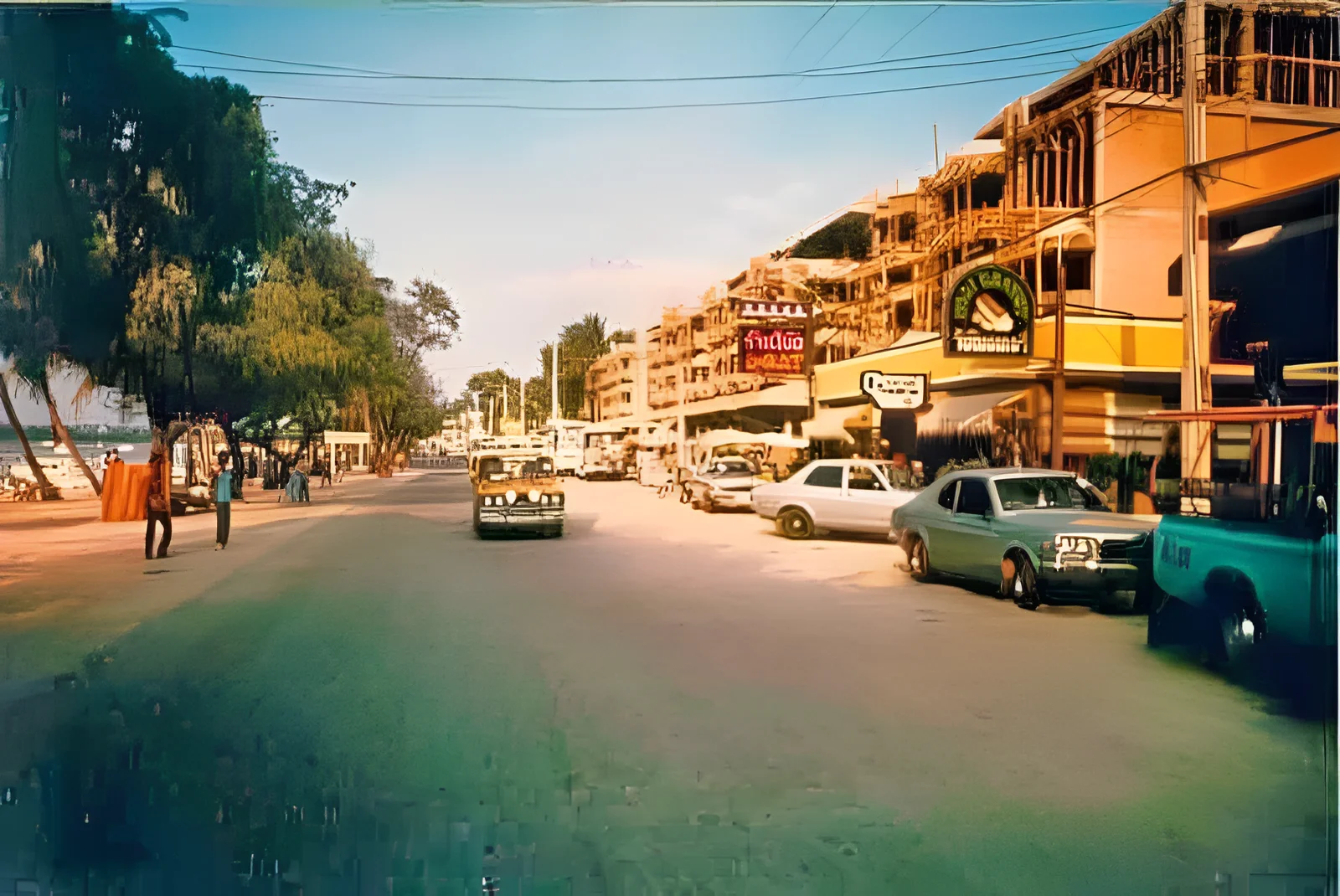
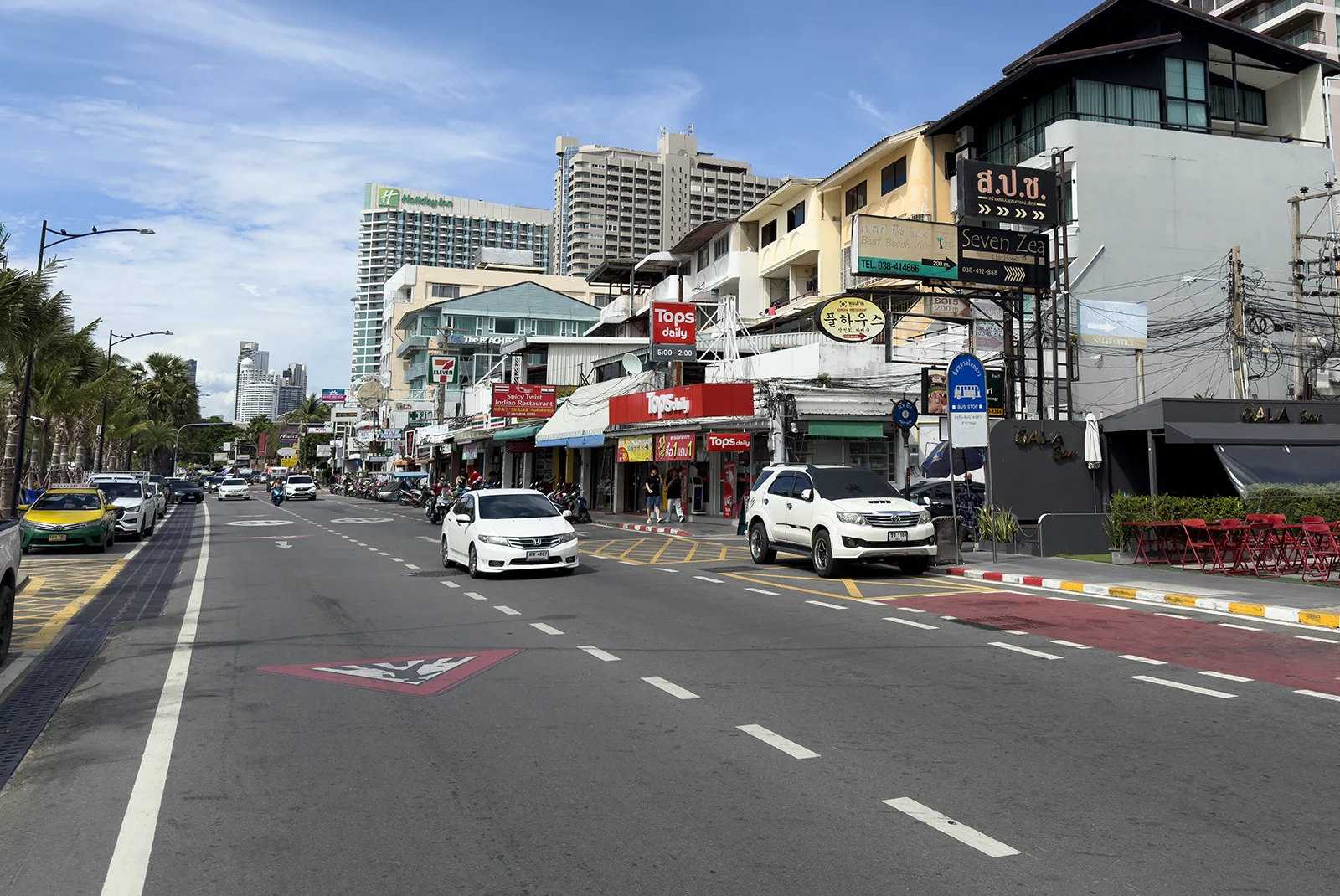
From the 1990s to Today: New Directions and Challenges
By the 1990s, Pattaya had become one of the main vacation spots in Thailand. But rapid growth brought problems:
- The environment suffered, especially the beaches that used to be clean
- The city became overcrowded, and local services struggled to cope
- Pattaya got a reputation for adult entertainment, which overshadowed other aspects of the city
- Problems with crime and safety appeared
To solve these problems, the authorities started to change the direction of the city’s development:
- They built places for family vacations, such as water parks and theme parks
- They started developing sports tourism, especially golf and water sports
- They began cleaning the beaches and improving water quality
- They invested in cultural attractions to showcase Thai heritage
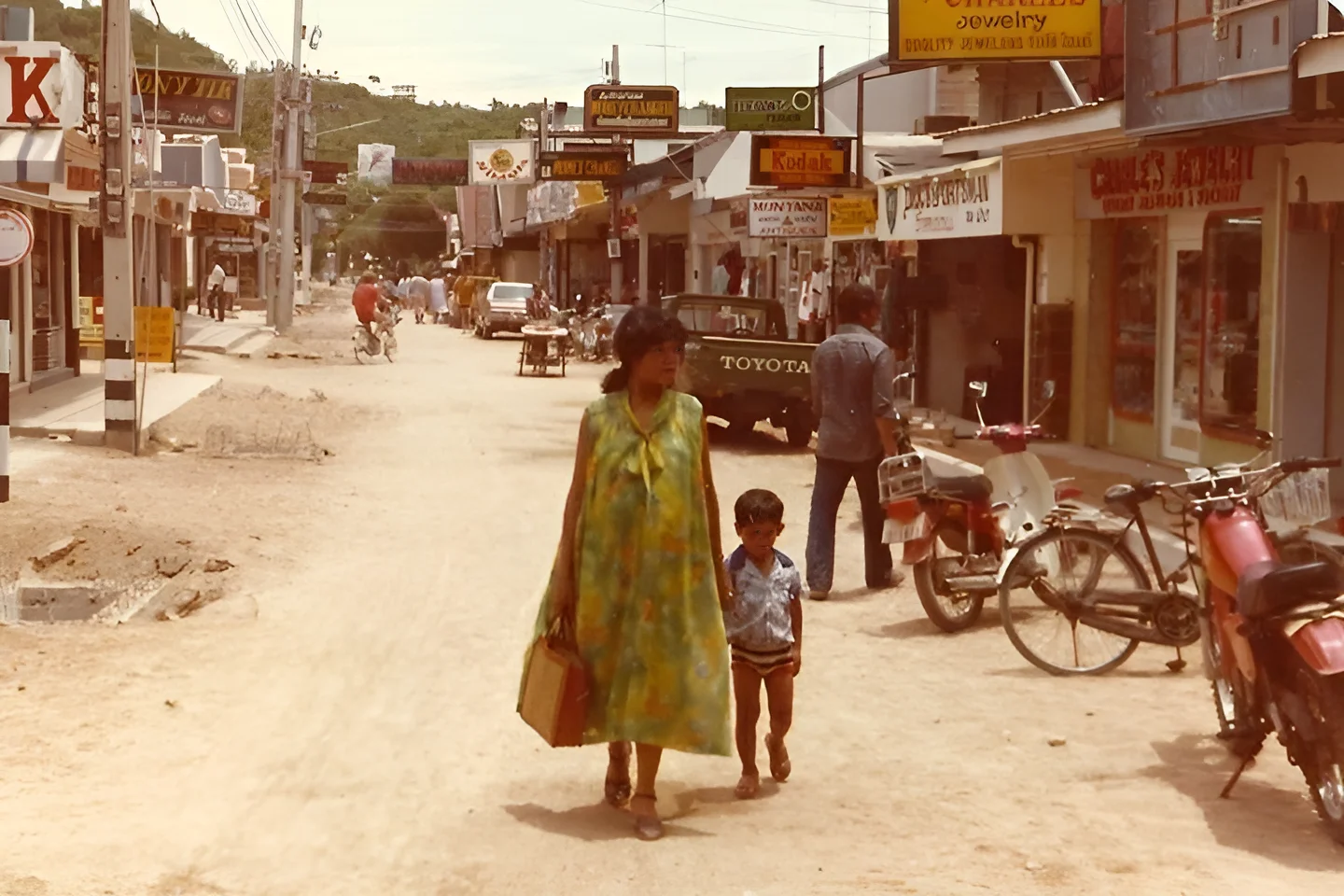
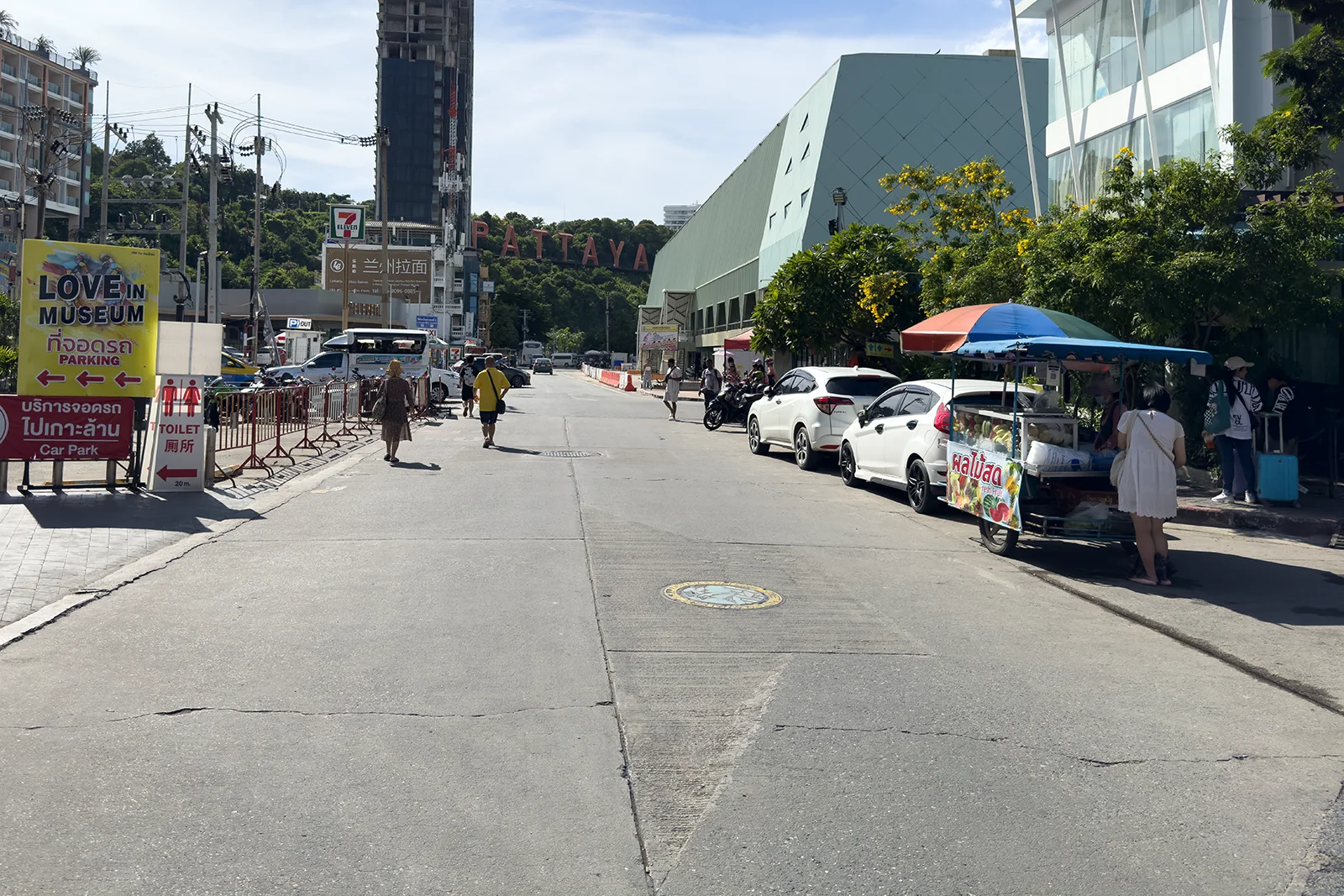
These changes helped attract new groups of tourists:
- More families started coming for vacations
- The number of tourists interested in culture and history increased
- Pattaya became a popular place for conferences and business meetings
However, some problems remained:
- The city’s old reputation still affects its image
- There are difficulties balancing tourism development and environmental protection
- Inequality between rich tourist areas and poor neighborhoods is growing
Today, it is a city of contrasts. The famous Walking Street still attracts party-lovers from around the world. And nearby, families enjoy beaches and cultural events.
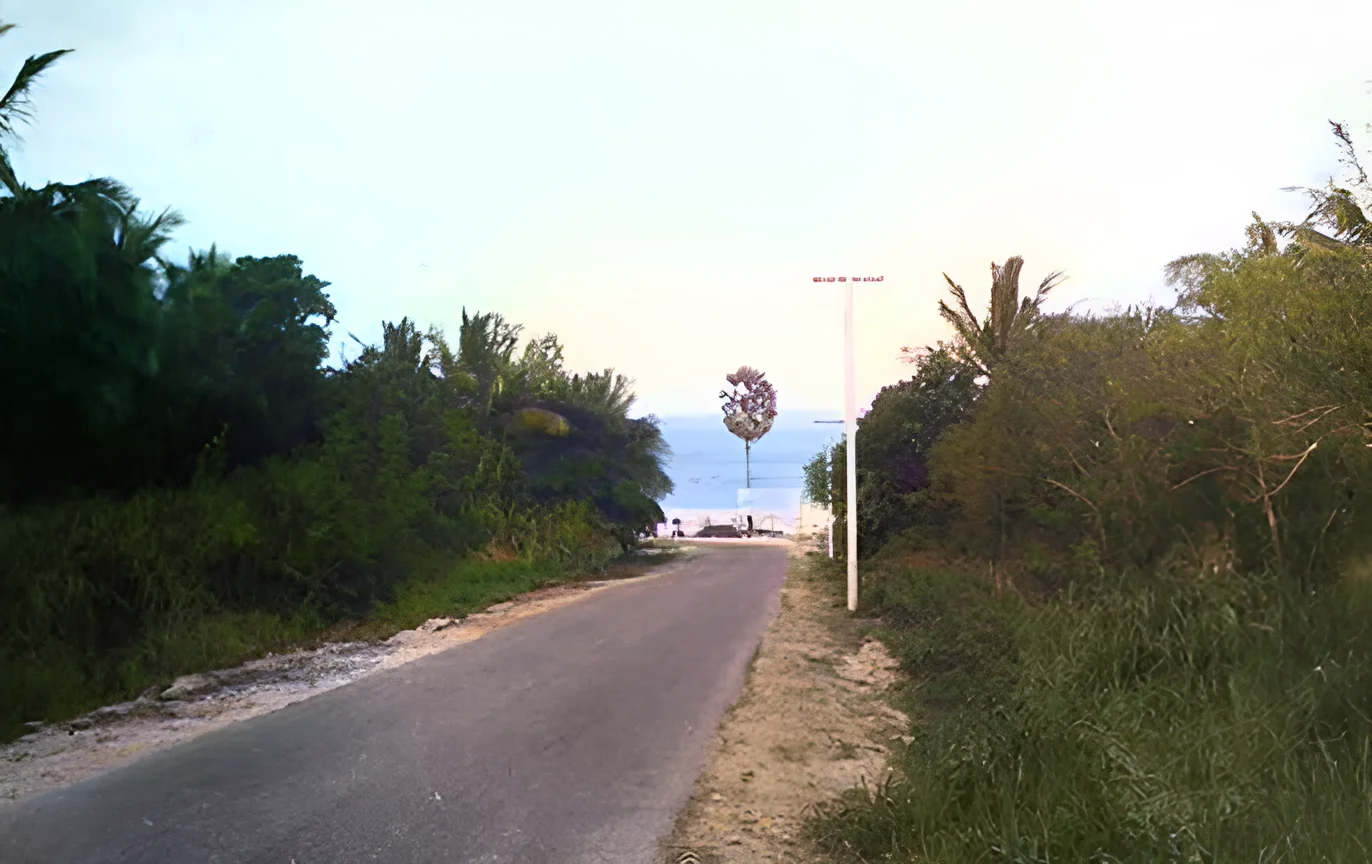
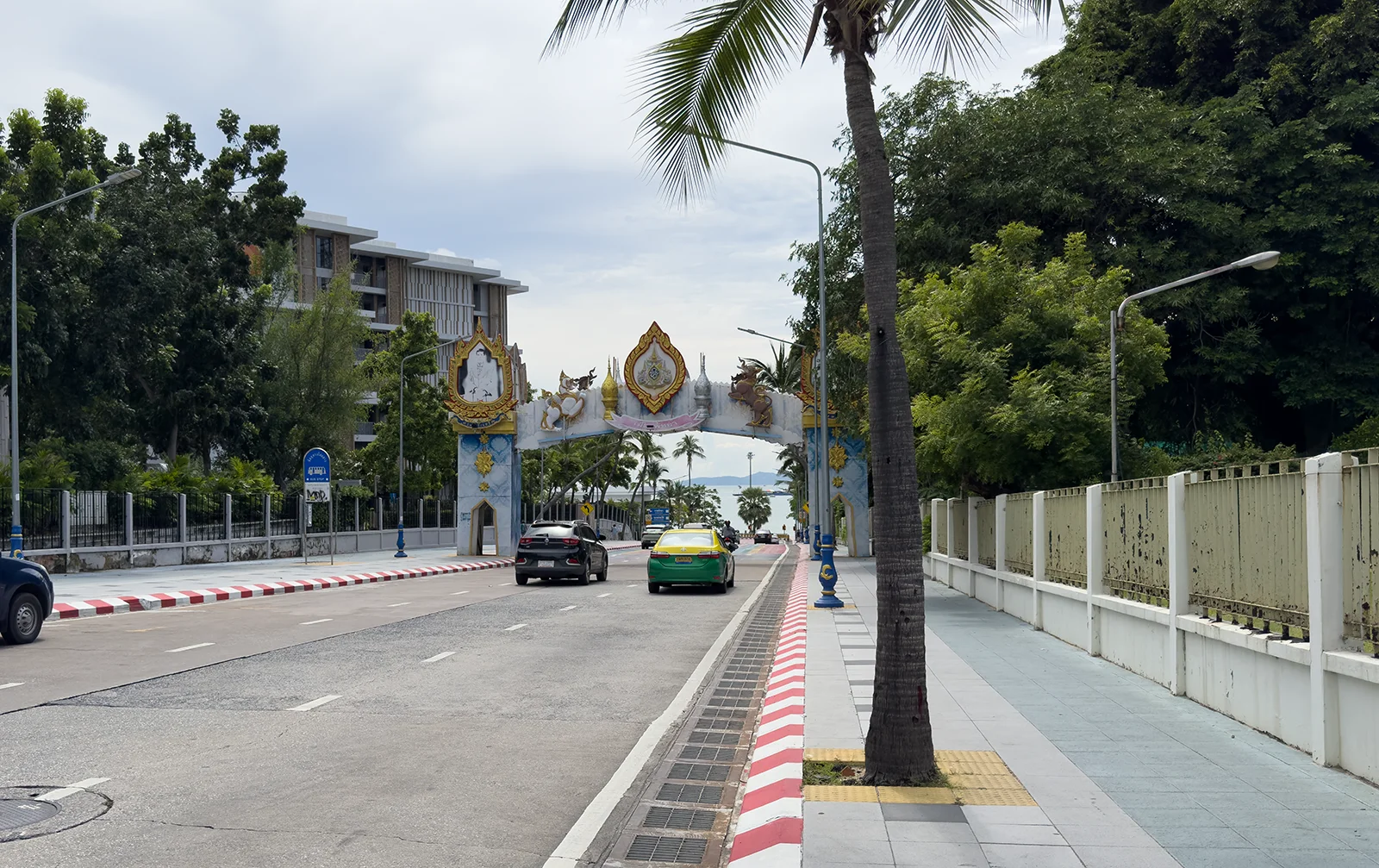
Pattaya Today: Looking Back and Forward
The story of how Pattaya changed from a quiet fishing village to a busy tourist city is an important part of Thailand’s modern history. It shows how globalization, tourism, and local culture can interact in complex ways.
Pattaya continues to change. The city needs to find a balance between its lively reputation and plans for a more diverse and sustainable future. Pattaya’s ability to adapt and renew itself has always been its strength, and this flexibility will likely help the city in the future.
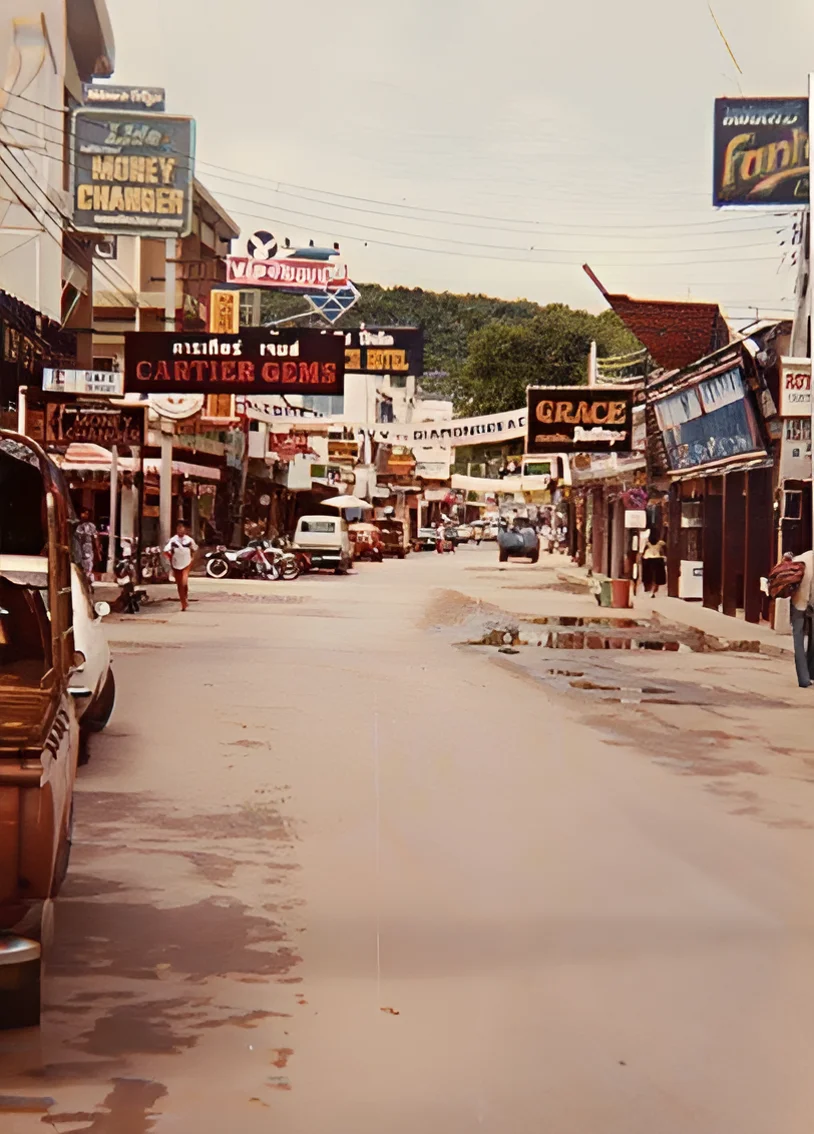
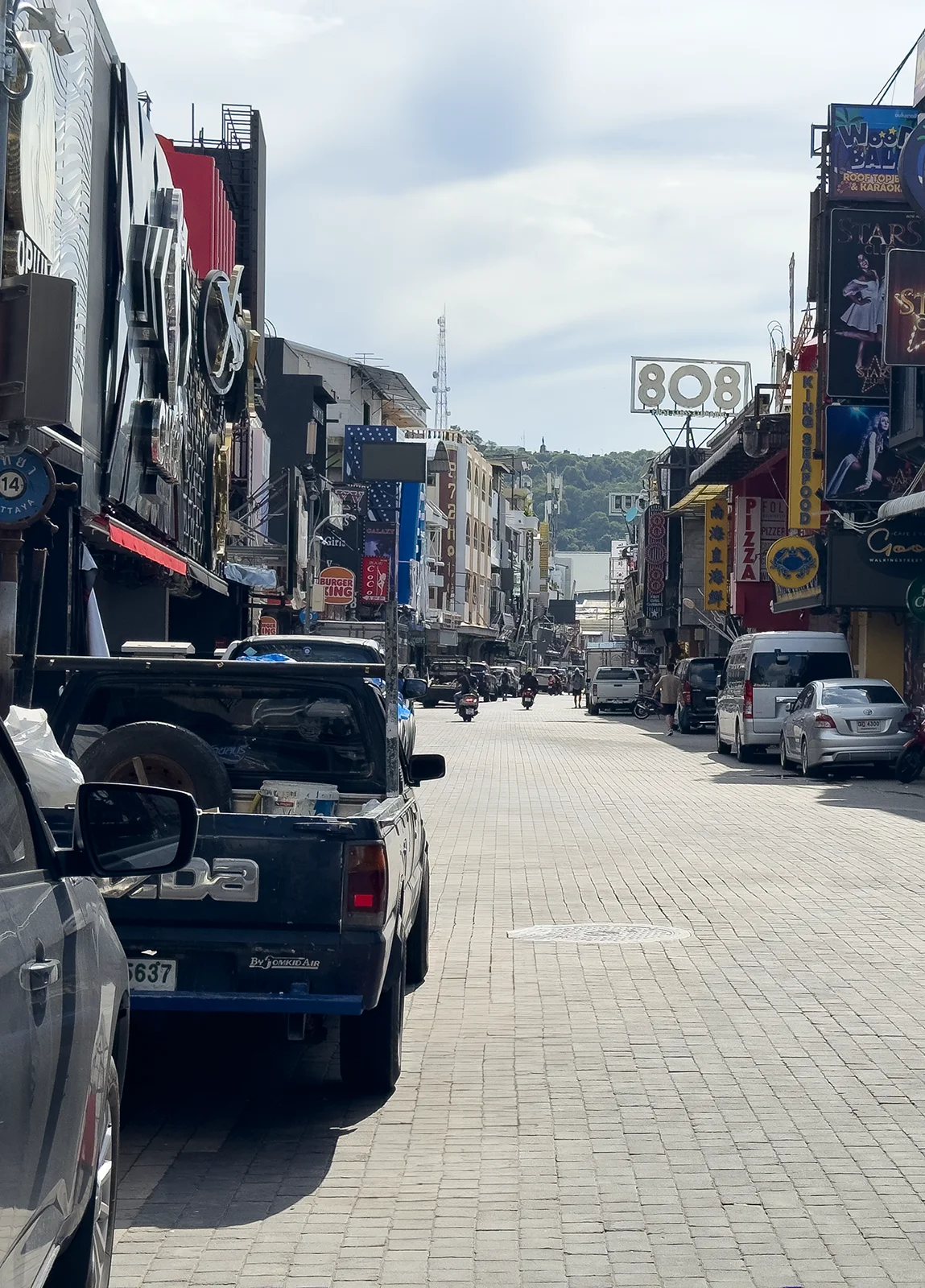
Today’s Pattaya is very different from the fishing village it once was:
- The population has grown from a few thousand to more than 300,000 people
- Millions of tourists visit the city each year
- The city’s skyline has changed: now there are many high-rise buildings
- The economy has completely changed: from fishing to tourism and related services
- The cultural landscape has also changed: the city has become more international
But some things have stayed the same:
- The sea still plays an important role in the city’s life, although differently
- Many families whose ancestors were fishermen still live in Pattaya
- Thai traditions and culture are still important, especially in less touristy areas
For visitors and residents, understanding Pattaya’s history helps them better appreciate the unique character of the city. From the fishermen who once cast their nets in these waters to the millions of tourists who now come to these shores – Pattaya’s story is full of constant changes and amazing transformations.
